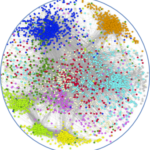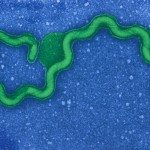Lien vers Pubmed [PMID] – 39349472
Lien vers HAL – hal-04719182
Lien DOI – 10.1038/s41522-024-00570-0
npj Biofilms and Microbiomes, 2024, 10 (1), pp.95. ⟨10.1038/s41522-024-00570-0⟩
Life-threatening Leptospira interrogans navigate a dual existence: surviving in the environment and infecting mammalian hosts. Biofilm formation is presumably an important survival strategy to achieve this process. Understanding the relation between biofilm and virulence might improve our comprehension of leptospirosis epidemiology. Our study focused on elucidating Leptospira’s adaptations and regulations involved in such complex microenvironments. To determine the transcriptional profile of Leptospira in biofilm, we compared the transcriptomes in late biofilms and in exponential planktonic cultures. While genes for motility, energy production, and metabolism were downregulated, those governing general stress response, defense against metal stress, and redox homeostasis showed a significant upsurge, hinting at a tailored defensive strategy against stress. Further, despite a reduced metabolic state, biofilm disruption swiftly restored metabolic activity. Crucially, bacteria in late biofilms or resulting from biofilm disruption retained virulence in an animal model. In summary, our study highlights Leptospira’s adaptive equilibrium in biofilms: minimizing energy expenditure, potentially aiding in withstanding stresses while maintaining pathogenicity. These insights are important for explaining the survival strategies of Leptospira, revealing that a biofilm lifestyle may confer an advantage in maintaining virulence, an understanding essential for managing leptospirosis across both environmental and mammalian reservoirs.






